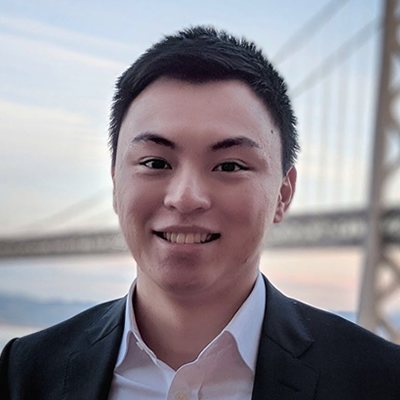Sharing by Past Participants
Could you briefly describe your profile and career?

Ivan Ho
I am currently based in Silicon Valley and work for the business operations and strategy team at Google. I am originally from Hong Kong.
To what extent did the case competition shape your future skills?

Ivan Ho
I would say there are three skills that I really polished at the competition.
First is problem solving. If done properly, solving a case at the competition level is quite similar to how I solve problems in my current job. We start with hypothesis, then structure the problem, and finally support our solution with facts and data. It is definitely a skill that the competition helped me develop.
The second skill is communication. With CEOs sitting in the judging panel, you want to get to the point as quickly as possible and communicate a clear message. It is very similar to what you are supposed to do in a professional environment when you present to executives.
The final skill is teamwork. At the HKU case competition, the time frame was a lot shorter than that at other competitions. Sometimes there are 24-hour case competitions where you have all the time to prepare, but at HKU, we had just a few hours. The time pressure required us to lean on our teammates and trust that every one of us would do our best.
To what extent did the case competition shape your future skills?

Ivan Ho
We had cases from all around the world including China, India, the USA, and Hong Kong. I particularly remember the Microsoft case, which focused on reinvigorating the tech giant. Now that I am working on strategy in the tech industry, it is really interesting to look back and see how some of the ideas we had as students—like a hybrid cloud—have actually been implemented by Microsoft.
It was also really interesting to see an international group of students solving problems and presenting in different ways. We were quite familiar with the methods and presentation styles of the teams from Hong Kong and Singapore, as we had met them at many competitions in Asia, but at the HKU competition, we also had the opportunity to learn from students from many other countries by observing and discussing with them.
Do you still keep in touch with your team members or other people that you met at the competition?

Ivan Ho
Yes, with some of them, especially with the teams from Singapore, because we were in so many competitions together.
Thinking back on the competition, how would you describe it to future participants?

Ivan Ho
The experience was all about solving problems, meeting new friends, and having fun. Outside the case preparations, there were a lot of fun activities, such as the welcome dinner, integration activities, and the final event.
It was a competition that you might need to spend a lot of time to prepare for, but the experience can be incredibly interesting if you decide to make it so. To give you an example, we actually went to an architecture studio to better prepare our slides. The HKU case competition uses overhead projectors, and we were required to handwrite our slides with markers on transparent films. We developed a set of slide templates with supporting cardboards and cutouts that allowed us to make neat and clear presentations very quickly.
To do well in the competition, you also should form your team with people from diverse backgrounds. In my team, we all brought different skills to the table. I would frame and structure the case problem as a generalist. Kelvin was studying accounting and finance, and he was responsible for the financials and risks. Wing-yan was an English major and a spectacular storyteller. Joseph, who always brought prudence and impeccable business judgment to our solutions, studied business and law.
If you could go back in time and give yourself a piece of advice with regard to life after university, what would it be?

Ivan Ho
Be true to yourself and constantly remind yourself of the passions that you have. It’s easy to forget your passion amid the daily grind, so you have to actively make sure that you are doing what you like, and help people do the same along the way.
For the students who are graduating, there is always a choice of launching their startup or joining the corporate world. Would you have any suggestion for which way to go?

Ivan Ho
Ask yourself why you want to do a startup. If you want a startup just for the sake of being a founder, or because you do not want to have a boss, then it is not the right way to go. However, if you are solving a real problem with your startup, and if you are passionate about it and believe it can grow, then go for it and don’t look back.